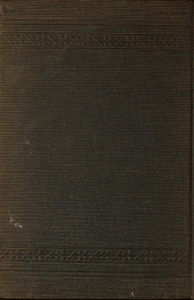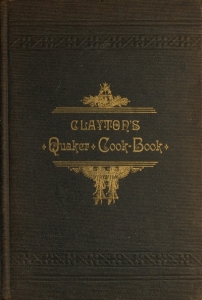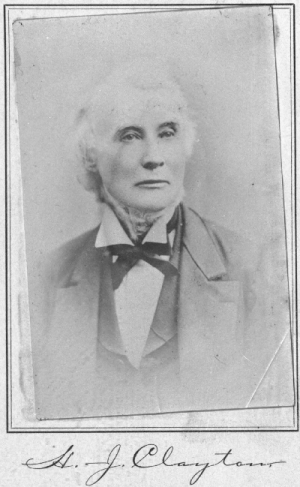Clayton's Quaker Cook-Book,
BEING A PRACTICAL TREATISE ON THE CULINARY ARTADAPTED TO THE TASTES AND WANTS OF ALL CLASSES.
With plain and easily understood directions for the preparation of everyvariety of food in the most attractive forms. Comprising theresult of a life-long experience in catering to ahost of highly cultivated tastes.
—BY—
San Francisco:
WOMEN'S CO-OPERATIVE PRINTING OFFICE.
1883.
Copyrighted according to Act of Congress, A. D. 1883, by H. J. Clayton.
PREFACE.
One of the sacred writers of the olden time is reported to havesaid: "Of the making of many books, there is no end." This remarkwill, to a great extent, apply to the number of works publishedupon the all important subject of Cookery. The oft-repeated saying,attributed to old sailors, that the Lord sends victuals, and the oppositeparty, the cooks, is familiar to all.
Notwithstanding the great number and variety of so-called cookbooksextant, the author of this treatise on the culinary art, thoroughlyimpressed with the belief that there is ample room for one more of athoroughly practical and every day life, common sense character—inevery way adapted to the wants of the community at large, and lookingespecially to the preparation of healthful, palatable, appetizing andnourishing food, both plain and elaborately compounded—and in thepreparation of which the very best, and, at the same time, the mosteconomical material is made use of, has ventured to present this newcandidate for the public approval. The preparation of this workembodies the result of more than thirty years personal and practicalexperience. The author taking nothing for granted, has thoroughlytested the value and entire correctness of every direction he has givenin these pages. While carefully catering to the varied tastes of themass, everything of an unhealthful, deleterious, or even doubtful character,has been carefully excluded; and all directions are given in theplainest style, so as to be readily understood, and fully comprehendedby all classes of citizens.
The writer having been born and brought up on a farm, and beingin his younger days of a delicate constitution, instead of joining inthe rugged work of the field, remained at home to aid and assist hismother in the culinary labors of the household. It was in this home-school—inits way one



